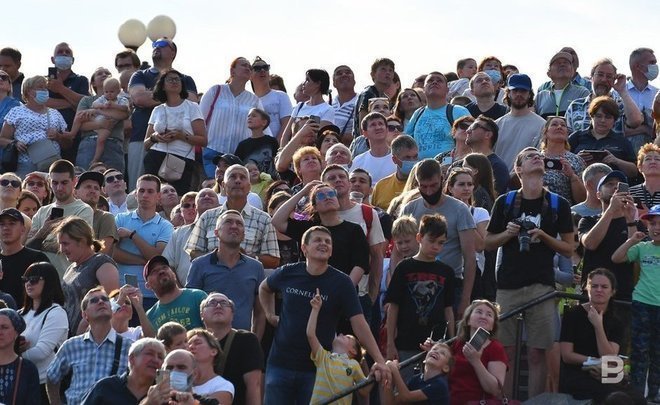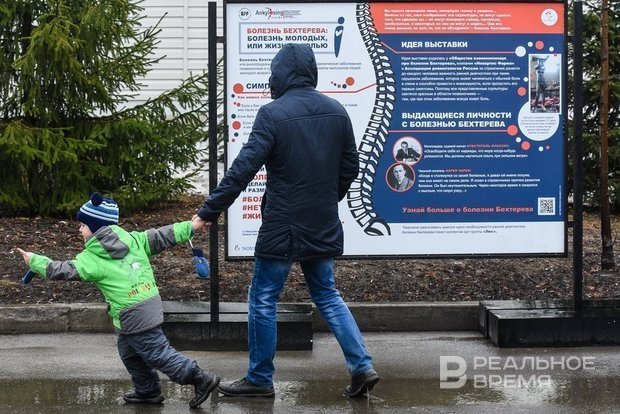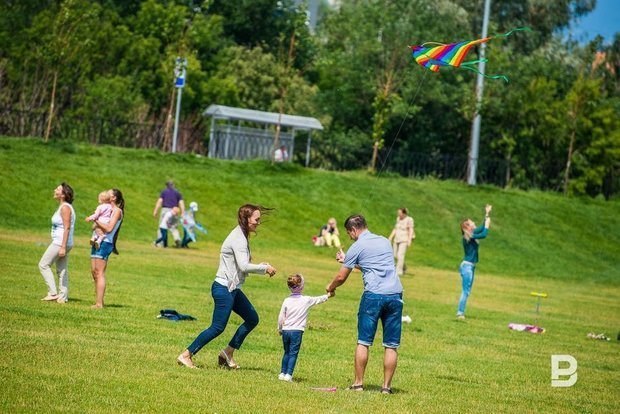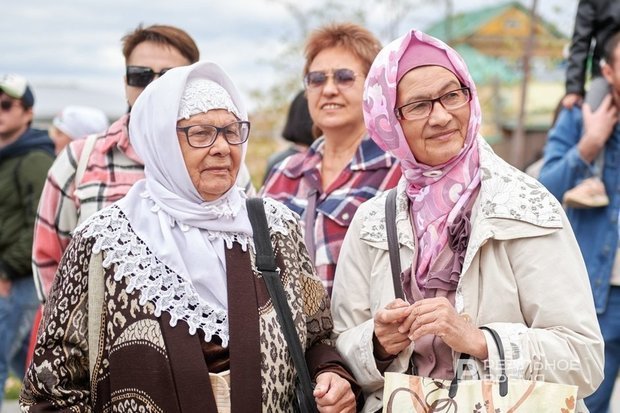Kazan authorities halve programme to strengthen civil accord

The Executive Committee of Kazan has developed a new programme to strengthen civil accord in the city, which will be implemented from 2024 to 2030. The previous document was adopted back in 2014 — despite annual adjustments, its content is outdated, and the validity period has almost expired. The current project provides for changes in financial support, the list of activities, as well as in the expected results. Read the details in the material of Realnoe Vremya.
Kazan authorities plan to allocate less funds in 7 years than in one year
The City Executive Committee approved the current municipal programme on May 16, 2014. Throughout 9 years, various changes have been repeatedly made to it. The latter were adopted on September 19, 2022. However, despite all these updates, in most cases the adjustments were only of a clarifying nature. They adjusted the document to the conditions of the following year, but did not change its main parameters.
As for financial support, 84,6 million rubles have been spent on it since the beginning of the implementation of the programme to date. Of this amount, 82,6 million went to the budget of Kazan itself, and another 2 million went to extra-budgetary funds. The most expensive year was 2021, when 35,8 million were allocated at once. For comparison, this year the volume of funds allocated reaches only 4,8 million.
With the new document, the situation is completely different — in the next 7 years, it is planned to spend 34,4 million rubles to strengthen civil accord. Moreover, all these funds will be allocated from the city treasury. Thus, the total amount of funding for the new programme turned out to be almost 2,5 times, or by 145,9% less than it was with the previous one. Moreover, it is also by 4% less than the amount allocated in 2021. However, the authors of the project noted that all these figures are only forward-looking and may be changed in the future.

The list of programme activities for which funds will be allocated include the following items:
- strengthening of the material and technical base of the children's theatre studio Apush: at the bases of the cultural centres Saydash, Lenin, and Chulpan;
- seminars for teachers, educators, and heads of educational organisations;
- assistance in holding All-Russian and republican national holidays: Nowruz, Sabantuy, Kuzminki, etc.;
- organising and holding meetings with writers;
- holding regular meetings with leaders and representatives of national cultural communities;
- organisation and holding of annual competitions in national sports;
- holding events dedicated to Republic Day and City Day, as well as Day of Russia;
- preparation and holding of the annual Kazan festival of multinational culture Kazan Solgese;
- Spirits Day in Sukonnaya Sloboda festival;
- Yana Sabantuy youth street festival;
- theatrical performance “Poems on the Balcony”;
- Itil street art festival of the peoples of the Volga region.
There are more percentages, but fewer people
Changes have also been made to the list of expected results. However, they did not touch the items themselves, but their meanings. So, by 2030 it is planned to achieve:
- the share of Kazan residents who assess interethnic relations in the city as favourable — 73% (by this year it was supposed to reach the level of 72,75%);
- the share of Kazan residents who assess interreligious relations in the city as favourable — 69% (by 2023 it was planned to reach 68,25%);
- level of tolerance towards representatives of other nationalities — 67,25% (was 62%);
- the share of city residents satisfied with the realisation of their ethno-cultural needs — 70,1% (according to the old programme — 68,8%);
- the number of participants in events aimed at the ethno-cultural development of the peoples living in the capital of Tatarstan and the support of linguistic diversity — 700 thousand people (by this year it was supposed to reach 705 thousand people).
Indeed, the values of the indicators have been increased. However, their growth for the next 7 years is planned in the range from 1% to 5%. At the same time, the number of citizens who will participate in events under this programme has decreased by 5 thousand people altogether. In addition to this point, the programme has additional indicators.

For example, the number of departments of the Multinational Sunday School MBU, aimed at preserving and developing the languages of the peoples living in Kazan, remained at the same level. As in the previous programme, their number should be at the level of 23 institutions by 2030. At the same time, the share of coverage of education and upbringing of children of Tatar nationality in their native language in general education and preschool institutions has increased — from 31% to 55%.
Volunteers involved in the activities of socially oriented non-profit organisations have completely disappeared from the list of the programme, although their number should have reached 120 thousand people by this year. The same applies to citywide and district actions, of which there were to be seven by 2023.
Representatives of over 173 nationalities live in Tatarstan today
The authors of the project emphasise that Tatarstan is one of the Russian regions with the most pronounced multinational and multi-confessional composition. To date, representatives of over 173 nationalities live on the territory of the republic. Kazan alone has more than 115 ethnic groups, including Russians, Tatars, Chuvash, Ukrainians, Azerbaijanis, Mari and others.
In total, 200 religious organisations function in the capital of Tatarstan: 97 — Islamic, 57 — Orthodox, 4 — Old Believers, 1 — Catholic, 1 — Armenian Apostolic, 34 — Protestant, 1 — Mormons, 2 — Jews, 1 — Baha'is, 1 — Krishnas, and 1 — Buddhists. There are 149 places of worship in the city: 75 mosques, 51 Orthodox churches, 5 Old Believer places of worship, 15 churches of other Christian directions, 1 synagogue, prayer houses of Baha'i and Krishna.

Moreover, according to the developers of the programme, since 1999 there has been a Peoples' Friendship House in Kazan, the purpose of which is to provide state support to public national and cultural organisations. It also houses the multinational family of the Assembly of Peoples, which unites representatives of 39 different nationalities at once.
All these circumstances have a positive impact on the tourist attractiveness of the region, and the harmonisation of interethnic relations and systematic work to stabilise the situation (which the programme will be aimed at) should contribute to the development of the industry. As examples, the executive committee cited the international competitions held in the city: World and European Championships, World Summer Universiade, FIFA World Cup. Thus, the adoption of the new programme should contribute to the growth of the attractiveness of the city as a platform for large-scale events with an international level.